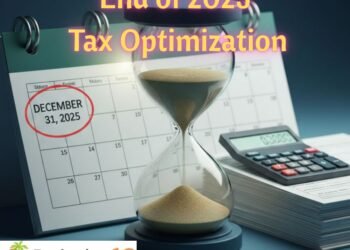A few weeks ago, my colleague Momodou penned a thoughtful essay asking: what does it actually mean to feel wealthy in the UK today?
It was prompted by a financial adviser’s bold but possibly ill-advised LinkedIn post that began: “Earning £100k+ a year but still don’t feel wealthy? You’re not alone…”
As someone earning well south of that figure, I chuckled. Then I remembered I have a two-year-old son, another child on the way, and a series of bank statements that read more like hostage statements.
We’re not starving, but money is tight. And that has led to some pointed questions about where, exactly, we should be allocating our resources.
We all know raising a child is expensive. According to the Child Poverty Action Group, the basic cost in the UK (excluding housing and childcare) is around £70,000 over 18 years.
In the first year alone, the cost can range from £6,000 to £11,000 depending on lifestyle. Which brings me to my son’s recent second birthday.
The plan for his birthday weekend was modest: first, a trip to Hamleys for one toy. We left with three.
Next came a day at Kew Gardens, including lunch and a park tour. (The audio commentary was mostly drowned out by my son shouting “Oh dear!”, a recently acquired and frequently deployed phrase.)
Finally, we visited Hampton Court Palace, because nothing says “toddler fun” quite like Tudor history.
Despite our efforts to highlight the surroundings, our son was more interested in climbing stairs, banging doors and legging it across landscaped gardens than taking in the historic grandeur.
Most of the photos from the weekend feature a blurry speck in the distance as he makes yet another bid for freedom. (Trying to catch him is like trying to corner a greased pig.)
Back at home, the present-opening ceremony involved more shredding of wrapping paper than playing with the actual toys – most of which were promptly forgotten in favour of hiding the confetti around the house.
Our recent trip to Portugal followed a similar pattern.
This was meant to be a belated honeymoon. We brought our son along, thinking it would be “good for him”, but let’s be honest, the pool of volunteers willing to babysit a toddler for two weeks is fairly shallow.
My wife noted that he experienced international travel before turning two, a milestone she hadn’t reached. But did he appreciate it? Or would he have been happier at nursery with his little mates?
Lisbon’s famous (and expensive) aquarium was a case in point. Exotic marine life turned into two hours of redirecting him away from ‘No Entry’ doors.
Don’t get me wrong, we had a lovely holiday overall. And despite the inevitable meltdowns, there were enriching moments for our son too, his first proper encounter with the seaside being a highlight.
Still, the question lingers: when does a child actually notice and appreciate these experiences? Is it worth the time, effort and expense now, or should we just wait until he’s older?
Returning to those childcare stats, there’s no doubt a lot of money gets flushed away by well-meaning parents.
We’ve learned to be suspicious of tech-based ‘learning’ toys that promise a lot but rarely deliver. We’ve also curbed the temptation to refresh his wardrobe too frequently – babies outgrow things at warp speed.
And if your child spends more time with the box than the toy, take the hint.
What doesn’t cost much, despite being priceless, is interactive time. A run in the park, a singalong, or just play of all kinds. We also make sure we’re never too tired to read to him at bedtime. The benefits become clearer by the day.
That’s not to say trips and holidays are off the agenda. While he may not remember them, we hope they’re shaping him in quiet, invisible ways.
Perhaps the value isn’t in the memories he forms now, but in the foundations we’re laying for his future understanding.
Raising a child is both a financial and emotional investment. And while the outgoings are considerable, the hope is that these early efforts – however unappreciated they may seem – will one day pay dividends.
At least, that’s what I tell myself whenever the next bank statement lands.














